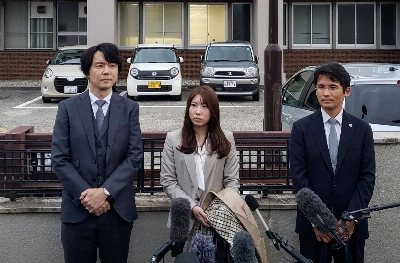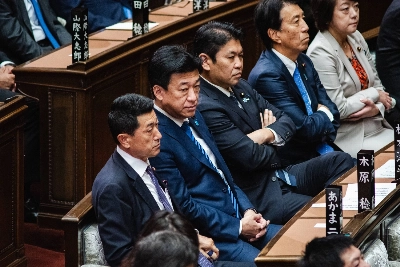The Bank of Japan on Tuesday kept its monetary policy unchanged, maintaining its decision to keep flooding the banking system with excess funds.
The decision reflects the central bank's view that while the economy shows signs of improvement, it remains vulnerable to market downturns overseas.
The central bank will continue pumping money into private sector banks' current accounts at the BOJ to keep the balance at between 10 trillion yen and 15 trillion yen, the BOJ Policy Board decided by unanimous vote.
Despite weak domestic demand, Policy Board members are expected to have revised their assessment of the economy upwards in July for the fifth month in a row, based on signs of improvement in corporate sentiment, coupled with statistics showing rises in industrial production and machinery orders.
But financial markets continue to trouble members. The Dow Jones industrial average fell over $400 at one point during Monday's trading, while the dollar lost ground to the yen, reaching levels seen right after the Sept. 11 terrorist attacks.
In recent talks, BOJ Policy Board members have warned of the essential frailty of the economy, and its vulnerability to sudden shocks in financial markets. Further share price tumbles and yen gains against the dollar are also certain to add to the pressure on the BOJ.
"There are signs of recovery in parts of the economy, but we will of course need policies that consider recent sensitive movements in the exchange rate," Heizo Takenaka, state minister in charge of economic and fiscal policy, said in a news conference just prior to attending the Policy Board meeting.
Beginning in March 2001, the BOJ has force-fed the banking system with record levels of money in the hope that some of it will find its way to companies and individuals, stimulate demand and halt price falls.

















With your current subscription plan you can comment on stories. However, before writing your first comment, please create a display name in the Profile section of your subscriber account page.